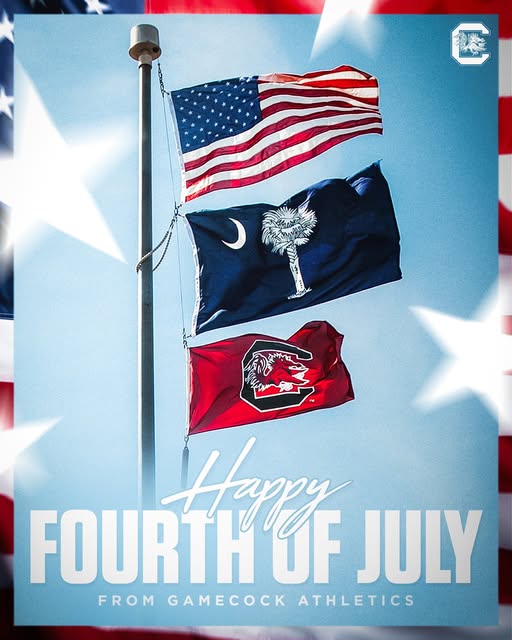“Land of the free, home of the brave.” It’s more than just a line from the national anthem; it’s the soul of America, a poetic reflection of its identity. This phrase encapsulates the enduring spirit of a nation built on the ideals of liberty, forged in the crucible of conflict, and carried forward by generations who dared to dream, sacrifice, and defend those dreams with unyielding resolve. From the founding fathers to modern-day heroes, America’s legacy is etched in acts of valor, principles of freedom, and a relentless pursuit of justice for all.
The foundation of American freedom was laid long before the ink dried on the Declaration of Independence in 1776. A rebellious spirit stirred in the colonies, pushing against the weight of monarchy and tyranny. Ordinary citizens—farmers, blacksmiths, teachers—took up arms not for conquest, but for the right to live free. They believed in something radical: that all men are created equal and are endowed with unalienable rights—life, liberty, and the pursuit of happiness. These were not just political statements but sacred promises to be fulfilled.
The Revolutionary War was a painful birth for a young nation. Lives were lost, families torn, but amid the smoke and blood, a new country emerged. The victory was not merely over the British crown but over the idea that people must be ruled rather than represented. The bravery of those first patriots echoes still, a testament to what it means to fight for freedom. Their courage established a precedent—a national character—that would be called upon again and again throughout American history.
Freedom, however, has never been free. The Civil War would put the nation’s commitment to its founding ideals to the ultimate test. Slavery, America’s original sin, divided the country in one of the bloodiest conflicts in human history. But it was also a moment of moral reckoning. Brave individuals like Abraham Lincoln, Harriet Tubman, Frederick Douglass, and countless unnamed soldiers and abolitionists stepped forward. Their bravery was not only physical but moral. They confronted deeply entrenched injustices and changed the course of history. When the Union was preserved and the Emancipation Proclamation issued, America inched closer to realizing its own promise. It was still flawed, but it had proven capable of self-correction.
The spirit of bravery carried into the twentieth century as America took its place on the world stage. During World War I and World War II, millions of Americans answered the call to defend democracy not just at home but abroad. They stormed beaches, flew through flak-filled skies, and endured unimaginable horrors in foreign lands—not for conquest or glory, but to secure the world’s freedom from tyranny. These were acts of enormous courage. But so too was the resilience of those back home—families who waited, worked in factories, planted victory gardens, and rationed supplies. Bravery wore many faces, both on the battlefield and in the home.
The post-war years brought new challenges. As the Cold War loomed, America faced the ideological battle between freedom and communism. It was a war fought with minds, not just missiles. It required bravery of a different kind—intellectual, diplomatic, and emotional. Meanwhile, at home, the Civil Rights Movement emerged as another front in the ongoing struggle for justice. Figures like Martin Luther King Jr., Rosa Parks, and John Lewis risked their lives for a dream they hadn’t yet seen realized. They marched through hate, brutality, and jail cells, armed only with truth and hope. Their bravery forced the nation to confront its contradictions and move toward a more inclusive definition of freedom.
Even today, the fight for freedom and the acts of bravery that sustain it continue. The war on terror, the global pandemic, the calls for racial equity, and the defense of democracy in a time of political division all remind us that liberty is not a static achievement—it is an active duty. Firefighters, police officers, teachers, health care workers, journalists, and everyday citizens continue to exhibit courage in both dramatic and quiet ways. They stand up, speak out, and show up—not because they are fearless, but because they believe some things are worth the risk.
One need only look at American history to see how deeply embedded the concepts of freedom and bravery are in the national fabric. The country’s greatest advancements have come not in moments of ease but in moments of trial. From Selma to Stonewall, Normandy to New York, America has repeatedly redefined itself through courage. Each generation faces new tests, but the spirit remains the same: a refusal to accept injustice, a drive to improve, and a faith in the power of the individual.
At its best, America has always strived to be a beacon—a light for those seeking refuge, hope, and a fresh start. Immigrants from every corner of the globe have come seeking what the founding documents promised. Many arrived with nothing but ambition and left behind legacies of prosperity and patriotism. Their stories are sewn into the stars and stripes of the flag. They came because America symbolized more than land—it represented the freedom to be, to become, to believe.
It is easy to be cynical in an age of polarization and endless headlines. It’s easy to forget what unites when so much energy is spent emphasizing what divides. But the phrase “land of the free, home of the brave” is not merely aspirational—it’s historical. It’s reflective. And it’s prescriptive. It calls us not only to remember but to act. It asks every American to be brave enough to challenge injustice, to be vigilant in the defense of rights, and to never take liberty for granted.
On the Fourth of July, Americans wave flags, watch fireworks, and gather for barbecues. But beneath the celebration is something deeper: a collective recognition that freedom must be defended, that bravery must be honored, and that the American experiment continues with each generation. It is a day to reflect, yes, but also a day to recommit—to remember the sacrifices made and to make sure they were not in vain.
Whether in uniform or in protest, in public office or private acts of kindness, Americans show bravery every day. And through that courage, freedom lives on. The phrase “land of the free, home of the brave” is not just a slogan; it is a legacy and a responsibility. It is an invitation to every citizen to participate in the ongoing story of a nation that, for all its flaws and imperfections, still believes in liberty and justice for all.
As long as that belief burns in the hearts of the people, America will endure. As long as there are those willing to stand up, speak out, and sacrifice for others, the country will continue to rise to the occasion. And as long as the words “land of the free, home of the brave” are remembered not just as lyrics but as a call to action, then the American dream—difficult, demanding, and endlessly worth striving for—will remain alive.
In every generation, the meaning of freedom evolves, but its importance never diminishes. And with each test, the brave emerge—not just in moments of great fanfare, but in daily acts of integrity and courage. America’s story is not yet finished. It is written daily in the actions of its people. May we all be worthy of the freedom we’ve inherited and brave enough to protect it for those who come after us.



